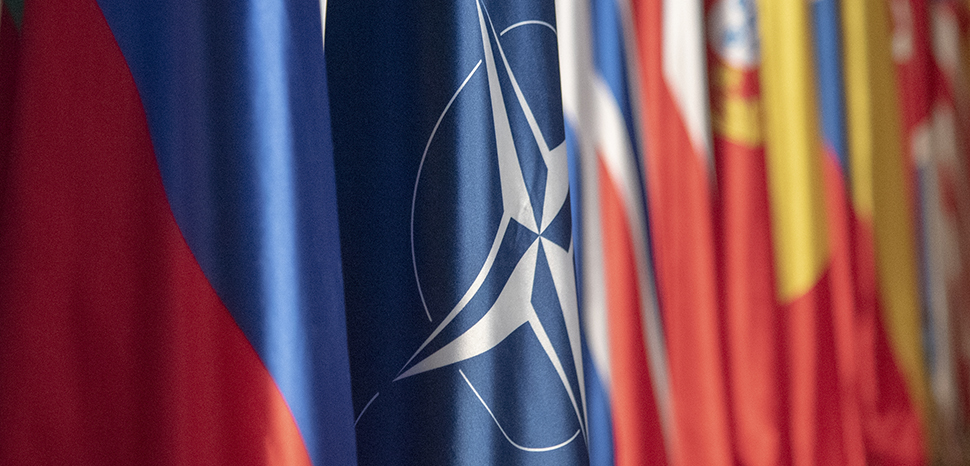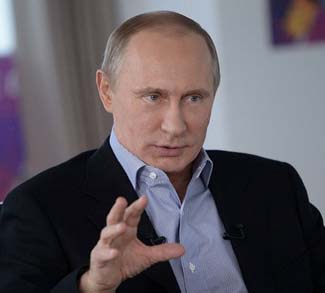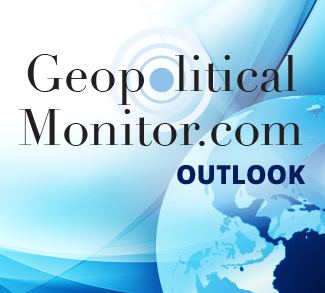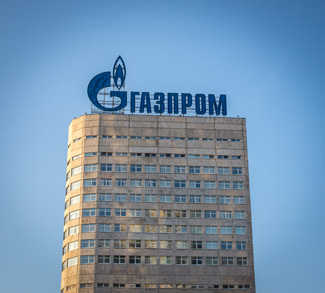The Vilnius Summit, convened by the NATO Heads of State and Government on July 11-12, 2023, concluded with the release of an extensive communiqué. This document distinguishes itself from a typical summit declaration, serving instead as a strategic roadmap that outlines NATO’s future direction in an ever-evolving world order.
The communiqué, detailed in its exposition of pivotal policy directions and strategic initiatives, encapsulates the collective vision of NATO members. Owing to its depth and breadth, this essay will focus on the salient points that underscore a significant shift in NATO’s role and strategic posture.
The document signals the advent of a New Cold War, indicative of a shift in global power dynamics with NATO positioning itself against strategic competitors, notably Russia and China. Additionally, it broadens the traditional concept of security to incorporate the global commons, including oceans, space, technology, and cyberspace.
Released on July 11, 2023, the Vilnius Summit Communiqué heralds a new epoch in international politics. This era, while echoing past rivalries, is shaped by contemporary realities. The subsequent analysis dissects the communiqué’s main points and their implications for this emerging New Cold War.
NATO’s Evolution and the Advent of a New Cold War
NATO, established on shared values of individual liberty, human rights, democracy, and the rule of law, was originally formed as a defensive alliance against the Soviet Union. Over time, NATO has had to redefine its role in a rapidly evolving world order, particularly in the post-Cold War era. This period brought into question NATO’s identity and purpose in a world that seemed to have moved beyond the bipolar power dynamics of the Cold War.
The Vilnius Summit Communiqué describes NATO as “the unique, essential and indispensable transatlantic forum to consult, coordinate and act on all matters related to our individual and collective security.” This powerful reaffirmation underscores NATO’s central role in preserving peace and stability across the Atlantic. Furthermore, it emphasizes NATO’s commitment to defend each other and every inch of Allied territory at all times, thereby ensuring the protection of its one billion citizens and safeguarding freedom and democracy.
The communiqué, however, reveals a significant shift in NATO’s strategic outlook. The Alliance is no longer merely a defensive entity but positions itself as a proactive force ready to confront emerging challenges in an increasingly multipolar world. The communiqué underscores a transition towards a broader definition of security that includes the global commons of oceans, space, technology, and cyberspace.
The document recognizes that the geopolitical landscape has evolved, acknowledging the re-emergence of great power competition and strategic rivalry, reminiscent of the dynamics of the Cold War era. However, this New Cold War, as suggested by the communiqué, is distinct in its multidimensionality and complexity. It is not confined to traditional military and geopolitical rivalry but extends to technological, economic, and ideological domains.
Thus, the Vilnius Summit Communiqué represents a milestone in NATO’s evolutionary journey, marking the dawn of a New Cold War era. In this context, NATO emerges as a key player navigating the complexities of this new strategic landscape, reinforcing its commitment to collective defence while adapting to new realities.
Expansion into Global Commons
The document encapsulates an ambitious vision for NATO as a global player, preparing to confront strategic competitors and potential adversaries, most notably Russia and China. This stance of the Alliance’s readiness to engage with these global powers across multiple dimensions is indicative of the onset of a New Cold War.
One of the key dimensions emphasized in the communiqué is the global commons, a domain that traditionally includes areas beyond national jurisdiction, such as the high seas, the atmosphere, outer space, and cyberspace. These areas have become increasingly contested in recent years due to technological advancements and shifting geopolitical interests.
According to the communiqué, “NATO’s deterrence and defence posture is based on an appropriate mix of nuclear, conventional and missile defence capabilities, complemented by space, cyber and maritime capabilities.” This suggests a significant expansion of NATO’s strategic focus beyond its conventional purview, extending into the realms of space, cyberspace, and the maritime domain.
The communiqué underscores the importance of the maritime domain, stating that “they (oceans and seas) are crucial to protect the global commons and enhance our resilience.” This highlights NATO’s recognition of the strategic significance of the oceans and seas and its readiness to protect and defend its interests in these areas.
Further, the document recognizes the challenges posed by the new domains of space and cyberspace. The communiqué states that “space is an increasingly contested domain, marked by irresponsible behaviour, malicious activities, and the growth of counterspace capabilities by NATO’s potential adversaries and strategic competitors” and that “cyberspace is contested at all times as threat actors increasingly seek to destabilize the Alliance by employing malicious cyber activities and campaigns.”
As the communiqué states, “Allies are committed to upholding international law and we will continue to support international efforts to reduce space threats by promoting norms, rules, and principles of responsible behaviours.” This represents NATO’s commitment to ensuring a rules-based order in these global commons, even as it prepares to defend its interests in these domains.
The communiqué’s focus on the global commons underscores NATO’s recognition of the evolving nature of security threats and its determination to address them. This readiness to extend its strategic focus beyond its traditional domains underlines the emergence of a New Cold War, characterized by multi-dimensional competition and contestation across various domains. As NATO navigates this new landscape, the principles of collective defence and shared values remain at its core, guiding its approach towards these new challenges.
Security Dilemma and the New Cold War
The transformation of NATO, as outlined in the Vilnius Summit Communiqué, signifies a response to perceived threats, primarily from Russia and China. The communiqué underscores NATO’s expansion into new domains, coupled with its strategic orientation towards these two global powers.
The statement that “together this family of plans will significantly improve our ability and readiness to deter and defend against any threats, including on short or no notice, and ensure timely reinforcement of all Allies, in line with our 360-degree approach” signals the Alliance’s preparedness to counter threats from any direction. This suggests a heightened sense of alertness and an escalating cycle of tension, especially with Russia and China.
The communiqué does not shy away from highlighting the challenges posed by Russia and China. It explicitly condemns Russia’s purported suspension of the New START treaty and its failure to comply with its legally-binding obligations under the treaty. It also acknowledges the systemic challenges posed by China to Euro-Atlantic security. These statements reflect NATO’s concerns about the assertive postures of Russia and China.
In this context, NATO’s strategic decisions and actions are likely to trigger reciprocal responses from Russia and China, escalating tensions and reinforcing the narrative of a New Cold War. The emphasis on NATO’s readiness to counter threats and its commitment to collective defence underscores this evolving dynamic.
However, the communiqué also underscores the importance of arms control, disarmament, and non-proliferation. It notes that these efforts, aimed at achieving NATO’s security objectives and ensuring strategic stability, will take into account the prevailing security environment and the security of all Allies. This suggests that while NATO is prepared for escalating tensions, it also seeks to balance this with diplomatic measures and adherence to international norms.
The Ideological Underpinnings of the Emerging New Cold War
NATO’s ideological foundation, underscored by a staunch commitment to democracy and the rule of law, is a crucial element reflected in the Vilnius Summit Communiqué. This dedication to shared democratic principles not only unites the Alliance but also heavily influences its strategic positioning in the global landscape.
At the very outset, the communiqué firmly asserts the Alliance’s shared values, stating: “As Heads of State and Government of the North Atlantic Alliance, we, bound by shared principles of human rights, democracy, individual liberty, and the rule of law, have convened in Vilnius amidst ongoing conflict on the European continent. Our goal is to reaffirm our unwavering transatlantic bond, unity, cohesion, and solidarity at a pivotal juncture for our security and global peace and stability.” This proclamation underlines NATO’s dedication to its foundational democratic ideals and its determination to uphold these principles in the face of burgeoning challenges.
China’s emergence as a strategic adversary forms a significant facet of this ideological rivalry. The communiqué notes: “The ambitions and coercive policies articulated by the People’s Republic of China (PRC) pose a challenge to our security, interests, and values.” The divergent political ideology of China and its assertive global posture present a counterpoint to NATO’s democratic ethos, thereby adding an ideological dimension to the unfolding New Cold War.
The communiqué further highlights NATO’s commitment to ensure that the evolution and application of new technologies align with its democratic values. It states: “In our collective effort to embrace and integrate new technologies, we are partnering with the private sector, safeguarding our innovation ecosystems, shaping responsible usage principles, and ensuring these efforts mirror our democratic values and respect for human rights.” This statement underlines NATO’s resolve to safeguard democratic values in the face of technological advancements.
In essence, the Vilnius Summit Communiqué illuminates the ideological aspect of the burgeoning New Cold War. As NATO navigates the challenges of this new era, its commitment to democratic values and the rule of law provides the guiding framework for its strategic approach.
Conclusion
The Vilnius Summit Communiqué illuminates the shifting dynamics of global politics and the adaptability of NATO in response to these changes. Amidst the rapid advancements in technology, multidimensional threats, and the emergence of new strategic competitors like Russia and China, the Communiqué stands as a testament to the advent of a New Cold War. This is not merely a military or territorial conflict but a layered contest of power, influence, and ideology.
As the Communiqué indicates, NATO, initially a defensive alliance, is venturing beyond its conventional role to confront these emerging challenges. This shift is not merely a reaction to the rise of strategic competitors but also an affirmation of the Alliance’s commitment to its foundational principles of individual liberty, human rights, democracy, and the rule of law. The repeated emphasis on these shared values throughout the document underscores their guiding role in NATO’s strategic evolution in the era of the New Cold War.
One notable aspect of this evolution is NATO’s expansion into the global commons, including oceans, space, technology, and cyberspace. The Communiqué underscores NATO’s readiness to extend its strategic focus beyond its traditional domains, thereby demonstrating the Alliance’s determination to penetrate its treaty-based boundaries. This readiness to defend its interests in the global commons signals the onset of a New Cold War, characterized by multi-dimensional competition across various domains. As NATO navigates this new landscape, the principles of collective defence and shared values continue to guide its approach.
As the Alliance navigates this intricate landscape, its commitment to collective defence, shared values, and adaptability remains steadfast. The Communiqué acknowledges the challenges and uncertainties that lie ahead, yet it also underscores NATO’s readiness to confront these challenges. It states: “We, the Heads of State and Government of the North Atlantic Alliance, are united in our commitment and resolve to prevail against any aggressor and defend every inch of Allied territory.”
The document also underlines the importance of strategic collaborations and cooperation in addressing shared security concerns. It reaffirms NATO’s commitment to working with international entities, partner nations, and other relevant stakeholders to enhance Euro-Atlantic security. The Alliance’s commitment to a broad human security agenda, including gender equality and the principles of the Women, Peace, and Security agenda, also showcases its comprehensive approach to security in the New Cold War era.
To conclude, the Vilnius Summit Communiqué serves as a testament to NATO’s strategic evolution and readiness to navigate the complexities of the New Cold War. It highlights the Alliance’s commitment to collective defence, shared democratic values, and adaptability in the face of evolving challenges. As we enter the era of a New Cold War, the Communiqué provides a roadmap for NATO’s strategic approach in this new era, reaffirming its role as a key player in global security and its willingness to extend its influence beyond its traditional boundaries.




